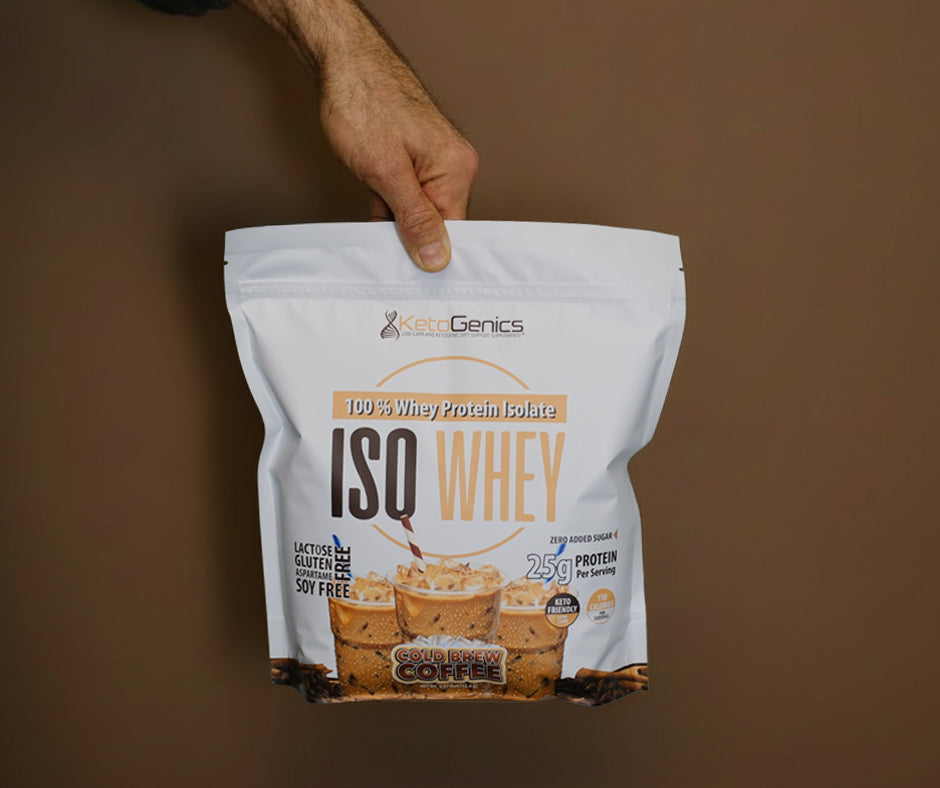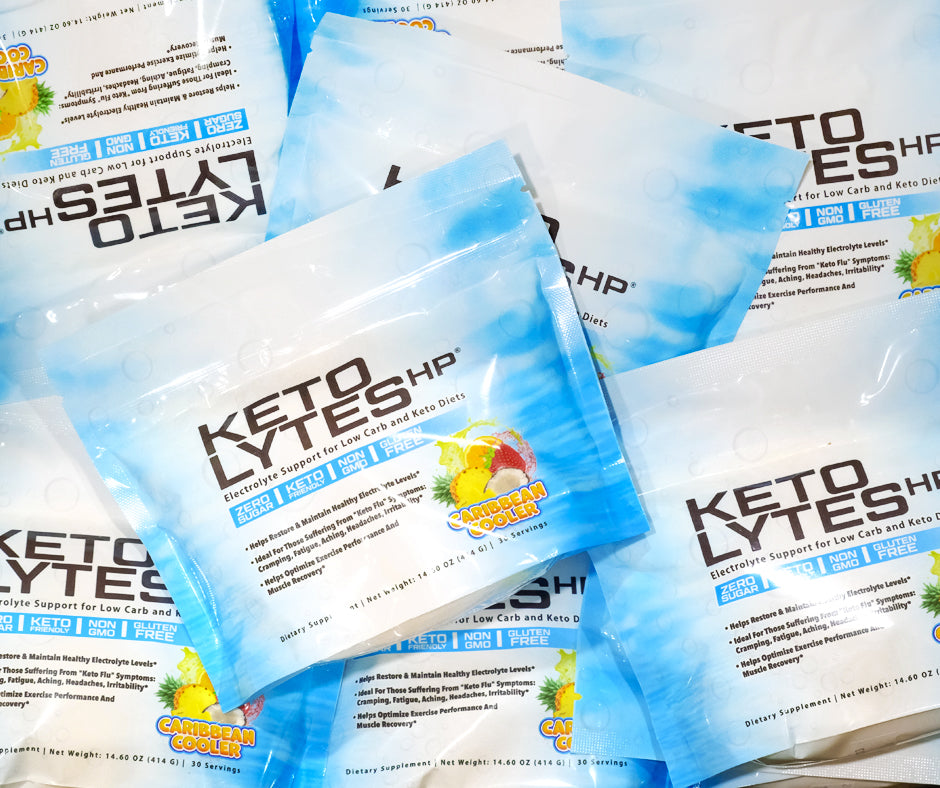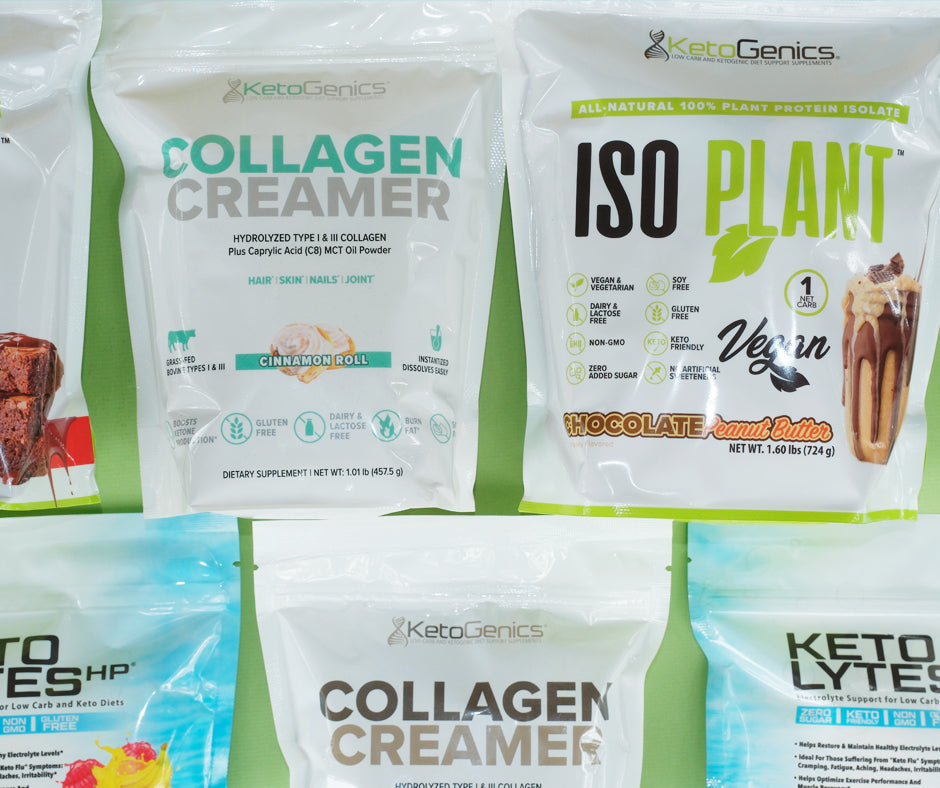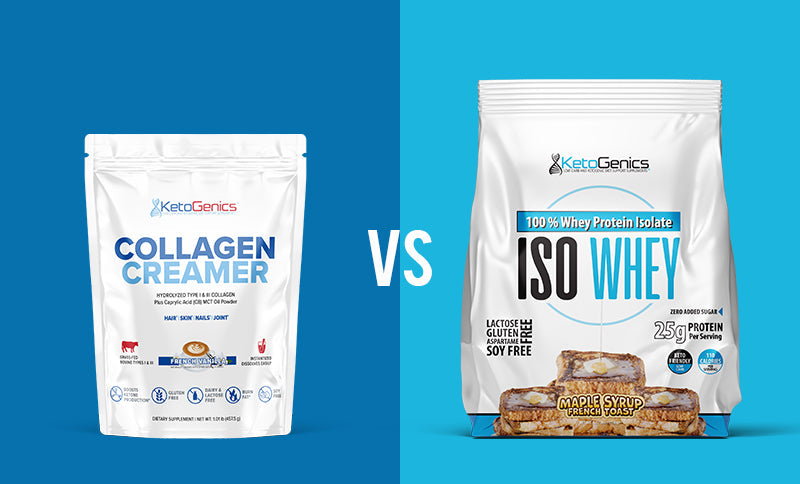Your Cart is Empty
TEXT JOIN TO +1 (844) 625-0085 TO GET FREE DOMESTIC SHIPPING ON YOUR FIRST ORDER.
TEXT JOIN TO +1 (844) 625-0085 TO GET FREE DOMESTIC SHIPPING ON YOUR FIRST ORDER.
Ketogenic Diet and Inflammation
November 03, 2016 3 min read
According to the Journal of Child Neurology many types of pain and painful or progressive conditions involve chronic inflammation. Several mechanistic threads support the hypothesis that a ketogenic diet will reduce inflammation.
Compared to glucose metabolism, ketone metabolism produces fewer reactive oxygen species - which are known to contribute to inflammation. A ketolytic metabolism produces fewer free radicals and reactive oxygen species through affecting the mitochondrial co-enzyme Q couple and the cytoplasmic glutathione couple.27 Exogenously applied ketones reduce reactive oxygen species in vitro28-32 and in vivo.33 Therefore the ketone-based metabolism of a ketogenic diet should guard against inflammation.
Data suggesting positive effects of a ketogenic diet itself on inflammation or associated inflammatory processes have been accumulating recently. In rodents, ketogenic diets reduce reactive oxygen species in the brain34 and reduce central inflammation and reactive oxygen species in a model of multiple sclerosis.35
Two clinical papers have found that ketogenic diet feeding of 12 weeks to 6 months reduced signs of liver inflammation in obese patients with nonalcoholic fatty liver disease (in addition to improving various other physiological and biochemical variables).36, 37 Unfortunately, basic research into non-alcoholic fatty liver disease has been hampered by species differences between mice and humans in their hepatic reaction to ketogenic diets.38
Beyond the effects of ketones and ketone metabolism, the high fat content of ketogenic diets will elevate fatty acid levels in the body, including long-chain polyunsaturated fatty acids that bind to peroxisome proliferator-activated receptors. When activated, these nuclear receptors induce transcriptional changes that culminate in enhanced lipid metabolism.39 Synthetic peroxisome proliferator-activated receptor agonists reduce experimentally-induced inflammation,40-42 and genetic knockout of a major peroxisome proliferator-activated receptor augments inflammatory reactions.43 This effect appears to involve inhibition of pro-inflammatory pathways involving Nuclear Factor κB, Signal Transduction And Transcription-1, and Nuclear Factor of Activated T-cells.44
An additional mechanism with anti-inflammatory potential is adenosine. As noted above evidence is mounting that a ketolytic metabolism elevates levels of the neuromodulator adenosine,17, 19 and adenosine has long been known to be anti-inflammatory,45, 46 acting via receptors at multiple sites including leukocytes,47 endothelia,48 and neurons.49 Thus, the ketogenic diet might have anti-inflammatory effects through increased adenosine production.
Read the full discussion about the effects a ketogenic diet has on inflammation and pain here: Ketogenic Diets and Pain
References:
28. Kim DY, Davis LM, Sullivan PG, et al. Ketone bodies are protective against oxidative stress in neocortical neurons. J Neurochem.2007;101:1316–1326. [PubMed]
29. Kim DY, Vallejo J, Rho JM. Ketones prevent synaptic dysfunction induced by mitochondrial respiratory complex inhibitors. J Neurochem.2010;114:130–141. [PMC free article] [PubMed]
30. Noh HS, Hah YS, Nilufar R, et al. Acetoacetate protects neuronal cells from oxidative glutamate toxicity. J Neurosci Res.2006;83:702–709. [PubMed]
31. Maalouf M, Rho JM. Oxidative impairment of hippocampal long-term potentiation involves activation of protein phosphatase 2A and is prevented by ketone bodies. J Neurosci Res.2008;86:3322–3330.[PMC free article] [PubMed]
32. Maalouf M, Sullivan PG, Davis L, et al. Ketones inhibit mitochondrial production of reactive oxygen species production following glutamate excitotoxicity by increasing NADH oxidation. Neuroscience.2007;145:256–264. [PMC free article] [PubMed]
33. Haces ML, Hernandez-Fonseca K, Medina-Campos ON, et al. Antioxidant capacity contributes to protection of ketone bodies against oxidative damage induced during hypoglycemic conditions. Exp Neurol.2008;211:85–96. [PubMed]
34. Sullivan PG, Rippy NA, Dorenbos K, et al. The ketogenic diet increases mitochondrial uncoupling protein levels and activity. Ann Neurol.2004;55:576–580. [PubMed]
35. Kim DY, Hao J, Liu R, et al. Inflammation-mediated memory dysfunction and effects of a ketogenic diet in a murine model of multiple sclerosis. PLoS One.2012;7:e35476. [PMC free article] [PubMed]
36. Tendler D, Lin S, Yancy WS, Jr, et al. The effect of a low-carbohydrate, ketogenic diet on nonalcoholic fatty liver disease: a pilot study. Dig Dis Sci.2007;52:589–593. [PubMed]
37. Pérez-Guisado J, Muñoz-Serrano A. The effect of the Spanish Ketogenic Mediterranean Diet on nonalcoholic fatty liver disease: a pilot study. J Med Food.2011;14:677–680. [PubMed]
38. Schugar RC, Crawford PA. Low-carbohydrate ketogenic diets, glucose homeostasis, and nonalcoholic fatty liver disease. Curr Opin Clin Nutr Metab Care.2012;15:374–380. [PMC free article] [PubMed]
Leave a comment
Comments will be approved before showing up.
Also in Keto and Low Carb Blog and Recipes | Ketogenics | KetoShop.com
Recent Articles
Subscribe
Sign up to get the latest on sales, new releases and more …








